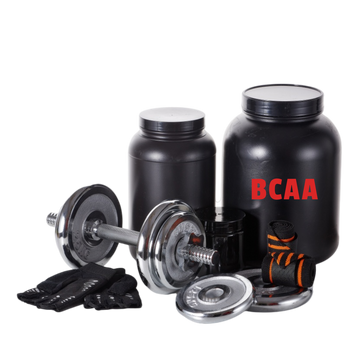
When it comes to fitness and supplementation, BCAAs (branched-chain amino acids) are a popular choice among athletes and gym-goers looking to improve performance, build muscle, and enhance recovery. But what exactly are BCAAs, and do they really help with fitness goals? Let’s dive into the science behind these essential nutrients.
What Are BCAAs?
BCAAs consist of three essential amino acids:
- Leucine
- Isoleucine
- Valine
These amino acids are "essential" because the body cannot produce them on its own, meaning they must be obtained through diet or supplementation. BCAAs differ from other amino acids due to their unique structure, which includes a branch in their chemical composition.
The Role of BCAAs in the Body
BCAAs are primarily metabolized in the muscles, unlike most other amino acids, which are broken down in the liver. This gives them a more direct impact on muscle tissue. Each of the three BCAAs plays a specific role:
- Leucine: Helps stimulate muscle protein synthesis, the process that repairs and builds new muscle tissues.
- Isoleucine: Plays a role in energy production and improves glucose uptake by the muscles.
- Valine: Supports muscle metabolism and helps maintain mental focus during exercise.
Do BCAAs Help with Fitness Goals?
There is research to support the claim that BCAAs can be beneficial for several fitness-related goals, including muscle building, endurance, and recovery.
1. Muscle Growth and Maintenance
Leucine, in particular, has been found to activate the key enzymes responsible for muscle protein synthesis. Research shows that BCAAs, especially when consumed post-exercise, may help stimulate muscle repair and growth by enhancing protein synthesis . However, for those already consuming enough protein, the additional benefit of BCAA supplementation might be minimal .
2. Reducing Exercise Fatigue
BCAAs may reduce the feeling of fatigue during prolonged exercise. Some studies suggest that BCAAs help lower the levels of tryptophan, an amino acid that the body converts into serotonin. Higher serotonin levels can lead to a feeling of fatigue, so reducing its availability may help keep you going during workouts .
3. Enhancing Recovery and Reducing Soreness
One of the most significant benefits of BCAAs is their ability to reduce muscle soreness. Delayed onset muscle soreness (DOMS) is common after intense exercise, and BCAAs can help reduce the severity of this soreness. A study found that participants who consumed BCAAs before and after exercise experienced less muscle soreness and faster recovery .
How to Incorporate BCAAs into Your Routine
BCAAs are available in various forms, including powders, capsules, and even ready-to-drink formulas. To maximize their effects:
- Pre-Workout: Take BCAAs before exercise to reduce muscle breakdown and increase endurance.
- Post-Workout: Consuming BCAAs after your workout can help stimulate muscle recovery and reduce soreness.
If you’re already consuming enough protein from food or protein supplements (like whey or plant-based proteins), additional BCAA supplementation may not be necessary. For those with dietary restrictions or during intense training cycles, BCAAs can be a useful supplement to bridge the gap.
Conclusion: Are BCAAs Worth It?
If your diet is already rich in protein or you're using a high-quality protein powder supplement that’s rich in BCAAs, you may already be meeting your body’s requirements for these essential amino acids. B Maximum’s Muscle Evolution Protein powders, available in delicious natural cacao and vanilla honey flavors, are packed with BCAAs, providing a comprehensive amino acid profile that supports muscle growth and recovery. This means that for most people, additional BCAA supplementation may not be necessary, as these protein powders already offer an optimal balance to fuel your fitness goals.
However for individuals looking to optimize their performance or those on restricted diets, BCAA supplementation could offer an edge. As always, it’s best to consult with a nutritionist or healthcare provider to assess your specific needs.
References:
- Study on BCAA and muscle protein synthesis: Journal of Nutrition
- Research on BCAA and exercise fatigue: Medicine and Science in Sports and Exercise
- Study on BCAA and muscle soreness: Journal of the International Society of Sports Nutrition







